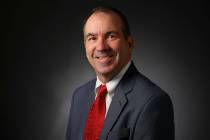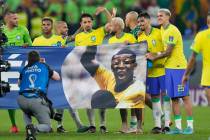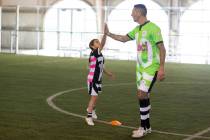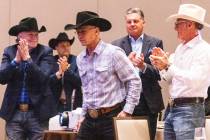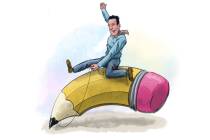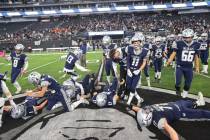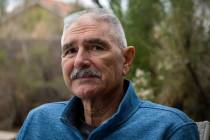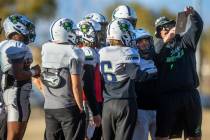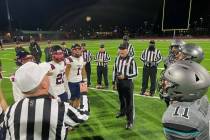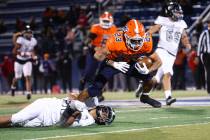Former UNLV player John Q. Trapp knew NBA fame, infamy
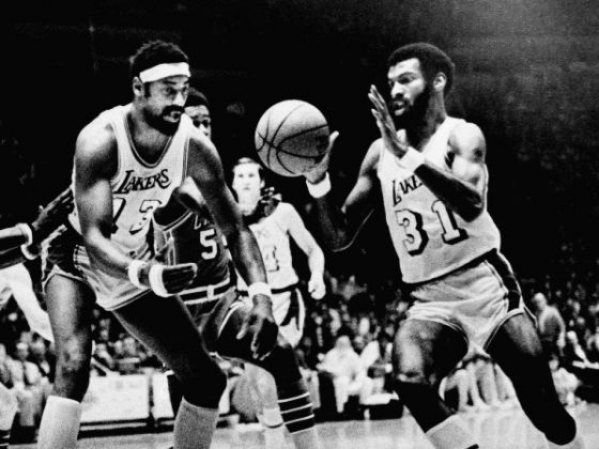
When I was a senior in high school, the Golden State Warriors were NBA champs. They had Rick Barry and Jamaal Wilkes, with the funky shooting stroke, and Clifford Ray. They also had Al Attles’ leisure suits, and his pointed collars and pants, which often were loud or plaid.
Attles was the Warriors coach, and when he wore those plaid pants, the Washington Bullets didn’t stand a chance. And that was the last time the Warriors won the title until last season, when they beat LeBron and four other guys.
Golden State opened this season with 24 consecutive victories before losing at Milwaukee on Saturday night, and so Happy Hairston can rest in peace.
Hairston was a key member of the 1971-72 Los Angeles Lakers, who won 33 in a row. When the Warriors would finally lose, I had decided, I would write about that Lakers team, because everybody else would be writing about the Warriors. It would help if there was a local angle.
That season’s Los Angeles roster was checked first: West, Goodrich, Chamberlain, Hairston, Jim McMillian from the Ivy League. Elgin Baylor, who retired after playing a few games that season. A backup guard with a mustache named Riley. Pat Riley.
A reserve forward named John Q. Trapp.
Who knew Happy Hairston would have only the second-coolest name on that great Lakers team?
John Q. Trapp’s name conjures an image of a guy walking down the street in Oakland during the Turbulent Sixties with a beret cocked on his head and a carbine slung over his shoulder. His name sounds militant, like H. Rap Brown. He sounds like a guy Patty Hearst might have befriended before joining the Symbionese Liberation Army.
His biography said he played one year at UNLV, and there was my local angle.
Marc Ratner, the former executive director of the Nevada Athletic Commission who is now a big shot with the UFC, said there was indeed a militant bent to John Q.’s game and persona.
Ratner saw play Trapp play at the Convention Center for the Rebels when Rolland Todd was coach (Trapp’s brother, George, would play for Jerry Tarkanian at Long Beach State. George Trapp died at age 53 after being stabbed in a knife fight). Ratner recalls the 6-foot-7-inch forward from the Detroit metro area shaving his head for a more menacing look.
“He could play,” Ratner said, and though John Q. would play only that one season (1967-68) here, he averaged 21 points and 11 rebounds. In 2009, the menacing guy with the militant name was named the 50th greatest Rebel of all-time by the Review-Journal.
“Elvin Hayes said John Q. Trapp was the toughest player he played against in college,” Rolland Todd said.
John Q. would play five seasons in the NBA. After backing up Happy Hairston on that famous Lakers team, and becoming the first former Rebel to earn a championship ring, he was traded along with LeRoy Ellis to the Philadelphia 76ers — the 1972-73 Philadelphia 76ers, who lost 20 games in a row and at one point were 4-58.
They caught fire at the end of the season to finish 9-73.
So Trapp played for one of the greatest NBA teams ever, and also for one of the worst, in back-to-back seasons. As for that stuff about being militant, it might be true — there’s a famous anecdote about John Q. that is told whenever old coaches who wore plaid pants meet up for cocktails and storytelling.
Roy Rubin, the Sixers coach in that deplorable season, supposedly wanted to take Trapp out of a game when the latter nodded toward an acquaintance in the stands.
This man opened his coat to reveal a gun.
John Q. remained in the game.
Later, when former Sixers player Fred Carter told the story to the Dallas Morning News, it was three guys with three guns.
In a book about that 76ers team titled “Perfectly Awful,” a story was told about Trapp running late to catch a flight when he was with the Lakers. He did not want to pay coach Bill Sharman’s fine. So he called the airport and said there was a bomb on the Lakers’ plane.
Said Alan Richman of the Philadelphia Bulletin: “What a scary fellow. Let me put it this way: I came back from Vietnam a captain with a Bronze Star, and I was scared of John Trapp. He really did frighten me.”
John Q. Trapp is said to be deceased, though nobody seems to know how he died, or when. Wikipedia says only that was born in 1945, which would make him 70 today.
A New York Post story that ran in 2012 about a 1971-72 Lakers reunion said only that he, Wilt and Happy Hairston “already were long gone,” and that Flynn Robinson, a backup guard for the 1971-72 Lakers, and LeRoy Ellis were suffering from incurable cancer. The story said it was sad those guys had died, or would soon.
It also said the team’s 33-game winning streak was as likely to be broken as Joe DiMaggio’s 56-game hitting streak.
Las Vegas Review-Journal sports columnist Ron Kantowski can be reached at rkantowski@reviewjournal.com or 702-383-0352. Follow him on Twitter: @ronkantowski.



